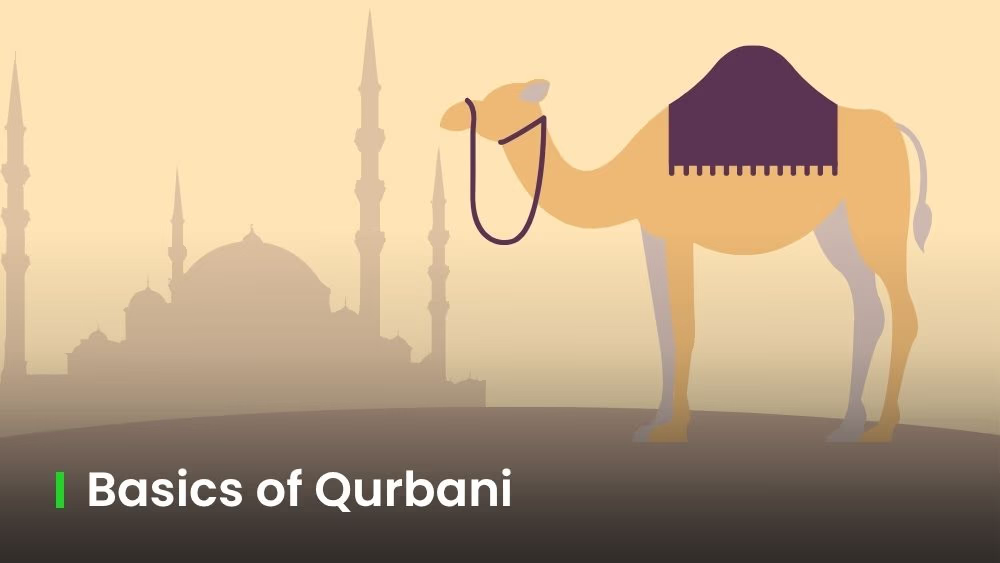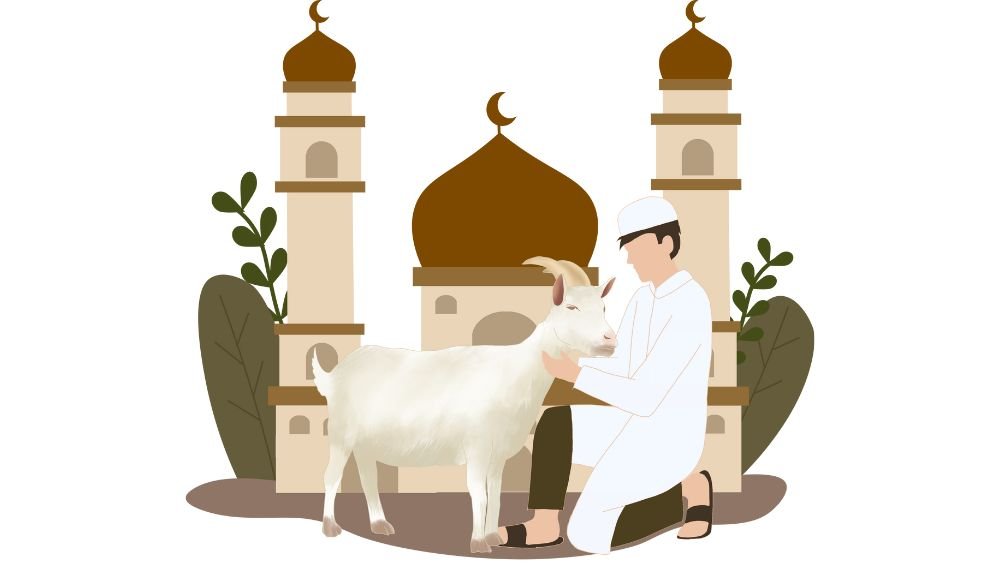What is Qurbani: Know the Qurbani Basics, Virtues & Rules

Qurbani is a significant Islamic rite observed during Eid al-Adha every year. It reminds us of the great sacrifice of Prophet Ibrahim (AS) and the spirit of submission to Allah. As we prepare for Qurbani this year, many of us ask a few vital questions: what is Qurbani, who has to give Qurbani, what kind of animals can be sacrificed, and so on.
Let’s take a moment to reflect on these questions and explore the basics of Qurbani, its purpose, rules, and rewards, so you can better understand this meaningful act of worship and fulfil it properly.
What is Qurbani in Islam?
The word “Qurbani” is an Arabic term derived from the root word “Qurban,” meaning “sacrifice” or “offering.” So, Qurbani in English frequently refers to ‘sacrifice’. Two other Arabic terms for Qurbani are Udhiya and Zabihah. This day is also called Eid al-Adha or Bakra Eid, one of the two annual Eid days for Muslims.
In Islam, Qurbani is the act of sacrificing (slaughtering) animals for the sake of Allah between the 10th and 12th of Dhul Hijjah. Muslims who are financially capable should offer Qurbani during this event.
Is Qurbani Fard?
Qurbani is Wajib (compulsory) according to the Hanafi school of thought. But the strong opinion of the other three Madhabs (Maliki, Shafi’i and Hanbali) is that Qurbani is Sunnah Mu’akkadah, i.e. highly recommended Sunnah.
Although there are differences in scholarly opinions, all agree that Qurbani is a confirmed Sunnah and should not be neglected by those able to perform it.
Note: Fard and Wajib are both compulsory. But Fard refers to obligatory actions supported with certainty, while Wajib is almost similar to Fard, but there is some uncertainty.

Who Is Eligible for Qurbani?
All adult Muslims of sound mind who possess wealth equal to or above the Nisab amount during the days of Qurbani should offer it.
In Islam, the Nisab amount is defined as:
- 87.48 grams of gold or
- 612.3 grams of silver or
- The equivalent wealth without debt
If you possess this wealth between the Fajr of the 10th Dhul Hijjah to the sunset of the 12th Dhul Hijjah, you should offer Zabihah.
We said before that performing Udhiya is highly recommended. So, whoever can do Qurbani should offer it for the sake of Allah. In fact, Prophet Muhammad ﷺ gave a sharp warning to those who don’t.
Abu Hurairah (RA) narrated a hadith from Allah’s Messenger ﷺ said: “He who has the ability but does not offer Qurbani should not even come near our Eidgah.” [Musnad Ahmad, Mustadrak al-Hakim]
Note: Qurbani isn’t obligatory on a Musafir (a person travelling more than 48 miles or 77 kilometers).
Why Do Muslims Give Qurbani? Purpose of Qurbani
The primary purpose of Qurbani/Udhiya is to show one’s devotion and Taqwa (Allah’s fear).
Allah Azza Wa Jall says in the Quran
لَن يَنَالَ ٱللَّهَ لُحُومُهَا وَلَا دِمَآؤُهَا وَلَـٰكِن يَنَالُهُ ٱلتَّقْوَىٰ مِنكُمْ ۚ كَذَٰلِكَ سَخَّرَهَا لَكُمْ لِتُكَبِّرُوا۟ ٱللَّهَ عَلَىٰ مَا هَدَىٰكُمْ ۗ وَبَشِّرِ ٱلْمُحْسِنِينَ ٣٧
Meaning: “It is neither their flesh nor their blood that reaches Allah, but what does reach Him is the taqwā (the sense of obedience) on your part. Thus He has made them (the animals) subjugated to you, so that you proclaim Allah’s glory for the guidance He gave you. And give good news to those who are good in their deeds.” [Surah al Hajj, 22 : 37]
Muslims offer Qurbani by sacrificing animals in obedience to Allah’s (SWT) command and to follow the Sunnah of Prophet Muhammad ﷺ. This act commemorates the profound sacrifice of Prophet Ibrahim (AS), who was willing to give up his son Ismail (AS) for the sake of Allah.
Ummul Mu’minin Aisha (RA) narrated that the Messenger of Allah ﷺ said:
“There is nothing dearer to Allah during the days of Qurbani than the sacrificing of animals. The sacrificed animal shall come on the Day of Judgement with its horns, hair, and hooves. Allah accepts the sacrifice before the blood reaches the ground. Therefore, sacrifice with an open and happy heart.” [Jami at-Tirmidhi, Sunan Ibn Majah]

